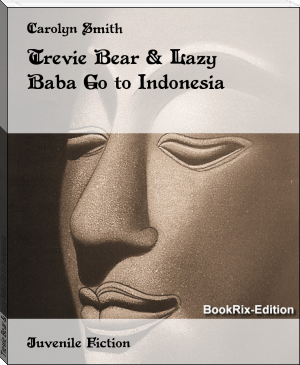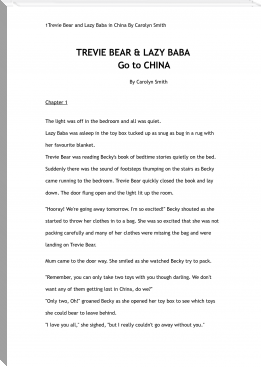Chasing the Sun - Robert Michael Ballantyne (good books to read .txt) 📗

- Author: Robert Michael Ballantyne
Book online «Chasing the Sun - Robert Michael Ballantyne (good books to read .txt) 📗». Author Robert Michael Ballantyne
Even so! Romantic reader, I am bound to tell you that romance is all very well in its way, but it has no power whatever over an empty stomach or an exhausted brain.
When our three friends landed in Bergen it was past midnight. Their admiration of the scenery had induced them to neglect supper and to defy sleep, so that when they landed they felt more than half inclined to fall upon their boatman and eat him up alive, and then to fall down on the stone pier and go off to sleep at once.
In this frame of mind and body they entered the house of Madame Sontoom, and called for supper.
Madame Sontoom was the owner of a private hotel. Moreover, she was the owner of a plump body and a warm heart. Consequently, she at once became a mother to all who were fortunate enough to dwell under her roof.
Her hotel was by no means like to a hotel in this country. It was more like a private residence. There were no hired waiters. Her amiable daughters waited; and they did not look upon you as a customer, or conduct themselves like servants. No, they treated you as a visitor, and conducted themselves with the agreeable familiarity of friends! Of course they presented their bill when you were about to leave them, but in all other respects the idea of a hotel was banished from the mind.
"Supper," cried Temple, on entering the house.
"Ya, ya," (yes, yes), in cheerful tones from two of Madame Sontoom's daughters.
Then followed a violent conversation in the Norse language, in which there was much that was puzzling, and more that was amusing, for the Norwegian ladies were talkative and inquisitive.
Fred Temple had studied the Norse language for three months before setting out on this voyage, and, being a good linguist he understood a good deal of what was said, and could make his own wants known pretty well. Grant had studied the language also, but not for so long a time, and, being an indifferent linguist, he made little headway in conversation. As to Sam Sorrel, he had no talent for languages. He hated every language but his mother-tongue, had not studied Norse at all, and did not intend to do so. It may be supposed, therefore, that he was dumb. Far from it. He had picked up a few phrases by ear, and was so fond of making use of these, and of twisting them into all shapes and out of all shape, that he really appeared to be a great talker of Norse, although in reality he could scarcely talk at all!
Supper consisted of coffee, rolls, eggs, "gamleost" (old cheese), lobster, and smoked salmon. The viands were good, the appetites were also good, so the supper went off admirably.
"Ver so goot," said one of the young ladies, handing Mr Sorrel a plate of smoked salmon.
"Tak, tak," (thanks, thanks), said our artist, accepting the salmon, and beginning to devour it.
"I say, what d'ye mean by `ver so goot'? You're never done saying it. What does it mean?"
The fair waitress laughed, and bowed politely, as much as to say, "I don't understand English."
"Can you explain it, Fred?" said Sam.
"Well, yes, I can give you a sort of explanation," replied Fred, "but it is not an easy sentence to translate. `Ver so goot' (another claw of that lobster, please. Thanks),--`ver so goot' is an expression that seems to me capable of extension and distension. It is a comfortable, jovial, rollicking expression, if I may say so. I cannot think of a better way of conveying an idea of its meaning than saying that it is a compound of the phrases `be so good,' `by your leave,' `good luck to you,' `go it, ye cripples,' and `that's your sort.' The first of these, `be so good,' is the literal translation. The others are more or less mixed up with it. You may rely on it, Sam, that when a Norwegian offers you anything and says `ver so goot,' he means you well, and hopes that you will make yourself comfortable."
"You don't say so, Fred; I'll adopt the phrase from this hour!"
Accordingly Sam Sorrel did adopt it, and used it on all and every occasion, without any regard to its appropriateness.
Little was said at supper. The whole party were too tired to converse.
"Now for bed," cried Sam, rising. "I say, Fred, what's the Norse for a bed?"
"Seng," replied Fred.
"Seng! what a remarkable name! Now, then, my good girl, _ver so goot_ will you show me my _seng_? Good night, comrades, I'm off to--ha! ha! what a musical idea--to seng."
"More probably to snore," observed Grant.
"Oh, Grant," said Sam, looking back and shaking his head, "give up jesting. It's bad for your health; fie for shame! good night."
Norwegian beds are wooden boxes of about three feet wide, and five and a half long. I have never been able to discover why it is that Norwegians love to make their beds as uncomfortable as possible. Yet so it is.
Grant had a room to himself. Temple and our artist were shown into a double-bedded room.
"Is that a bed?" said Sam, pointing to a red-painted wooden box in a corner; "why, it's too short even for me, and you know I'm not a giant."
"Oh! then what must it be for me?" groaned Fred Temple.
On close examination it was found that each bed was too short for any man above five feet two, and, further, that there was a feather-bed below and a feather-bed above, instead of blankets. Thus they lay that night between two feather-beds, which made them so hot that it was impossible to sleep at first. Sorrel, being short, managed to lie diagonally across his box, but Fred, being long, was compelled to double himself up like a foot-rule. However, fatigue at last caused them to slumber in spite of all difficulties. In the morning they were visited by a ghost!
CHAPTER FOUR.
A GHOST AND A CUSTOM--A FISH-MARKET AND A NORSE LOVER.
There was no night in Bergen at this time. At the midnight hour there was light enough to see to read the smallest print, and at an early hour in the morning this sweet twilight brightened into dawn.
This being the case, Fred Temple was not a little surprised to see a ghost make its appearance about six o'clock--for ghosts are famous for their hatred of broad daylight. Nevertheless there it was, in the form of a woman. What else could it be but a ghost? for no woman would dare to enter his bedroom (so he thought) without knocking at the door.
The ghost had in her hand a tray with a cup of coffee on it. Fred watched her motions with intense curiosity, and kept perfectly still, pretending to be asleep. She went straight to the box in which Sam Sorrel slept, and going down on her knees, looked earnestly into his face. As our artist's mouth happened to be wide-open, it may be said that she looked down his throat. Presently she spoke to him in a soft whisper--"Will de have caffe?" (Will you have coffee?) A loud snore was the reply. Again she spoke, somewhat louder: "Vill de have caffe?"
A snort was the reply.
Once more, in a tone which would not be denied:
"_Vill de have caffe_?"
"Eh! hallo! what! dear me! yes--ah--thank you--_ver so goot_," replied Sam, as he awoke and gazed in wild surprise at the ghost who was none other than the female domestic servant of the house, who had brought the visitors a cup of coffee before breakfast.
Sam's exclamations were wild at first, and he stared like a maniac, but as consciousness returned he understood his position, and being naturally a modest man, he hastily drew on his nightcap and gathered the bedding round his shoulders. Accepting the coffee, he drank it, and the girl crossed the room to pay similar attentions to Fred Temple.
This presentation of a cup of coffee in bed before breakfast is a custom in Norway, and a very pleasant custom it is, too, especially when it breaks upon you unexpectedly for the first time.
"Now for the fish-market, Sam," cried Fred, leaping out of bed when the girl had left the room.
"Who cares for the fish-market?" said Sam testily, as he turned round in his bed, and prepared to slumber.
"I care for it," retorted Fred, "and so do you, old boy, only you are lazy this morning. Come, get up. I have resolved to spend only one day in this queer old city, so you _must_ not let drowsiness rob you of your opportunities of seeing it. The fish-market, you know, is famous. Come, get up."
Temple enforced his advice by seizing his companion by the ankles and hauling him out of bed. Sam grumbled but submitted, and in a short time they were ready to start.
"Hallo! Grant," cried Fred, as they passed his door, "will you come with us to ramble over the town?"
"No," said Grant, in a deep bass voice.
"Why?"
"Because I won't."
"A most excellent reason; one much in use in this world," replied Temple, laughing. "By the way, will you remember to order two sheep to be killed for our voyage north?"
"Yes," in a sulky tone from Grant.
"Now mind, I trust this to you."
"Go away, and don't bother!"
Thus dismissed, Temple and Sorrel went out and sauntered towards the fish-market.
Now, fish-markets are famous all the world over for noise, riot, and confusion. The fish-market of Bergen is no exception to the rule; but there is this peculiarity about it, that the sellers of fish are all men, and the buyers all women; moreover, the noise is all on the side of the buyers! The scene of the market is the pier, alongside of which the fishermen's boats are ranged; and here the fish are sold direct from the boats by the men to all the servant-girls of the town, who assemble each morning to purchase the day's dinner.
The men, standing in the boats, are considerably below the level of the pier, so that they have to look up at the girls, who look down at them with eager, anxious faces. The men, sure that their fish will be sold in the long-run, are quiet sedate, silent. The women, anxious to get good bargains and impatient to get home, bend forward, shouting, screaming, and flourishing arms, fists, and umbrellas. Every one carries an umbrella in Bergen, for that city is said to be the rainiest in the





Comments (0)